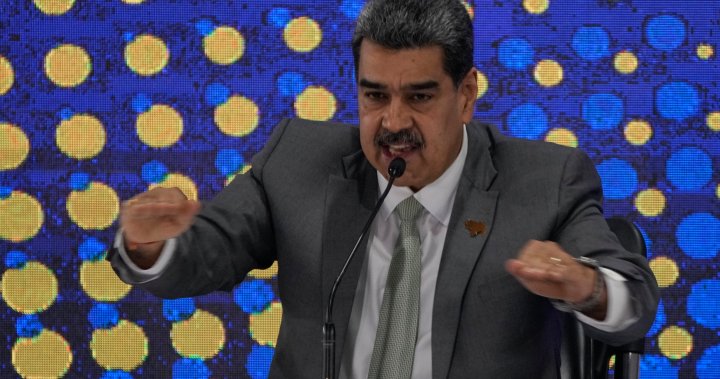
Tensions are rising between Guyana and Venezuela over a territorial dispute. What to know
Global News
Steeped in patriotism, the Venezuelan government is seizing on the fight to boost support ahead of a presidential election.
A century-old territorial dispute deepened by the discovery of oil is boiling over between neighbors Guyana and Venezuela. Steeped in patriotism, the Venezuelan government is seizing on the fight to boost support ahead of a presidential election among a population fed up with a decadelong crisis that has pushed many into poverty.
Venezuelans on Sunday approved a referendum to claim sovereignty over Essequibo, a mineral-rich territory that accounts for two-thirds of Guyana and lies near big offshore oil deposits. Military confrontation appears unlikely for now, but several countries have echoed Guyana’s concerns over an annexation by its neighbor to the west.
These are some of the key aspects of the growing dispute:
Venezuela says it was the victim of a land theft conspiracy in 1899, when Guyana was a British colony and arbitrators from Britain, Russia and the United States decided the boundary. The U.S. represented Venezuela in part because the Venezuelan government had broken off diplomatic relations with Britain.
Venezuelan officials contends Americans and Europeans colluded to cheat their country out of the land. They also argue that an agreement among Venezuela, Britain and the colony of British Guiana signed in 1966 to resolve the dispute effectively nullified the original arbitration.
Guyana maintains the initial accord is legal and binding and asked the United Nations’ top court in 2018 to rule it as such, but a decision is years away.
In 2015, major oil deposits were first discovered off Essequibo’s shore by an ExxonMobil-led consortium, piquing the interest of Venezuela, whose commitment to pursuing the territorial claim has fluctuated over the years.
The consortium began pumping oil in December 2019, converting largely agrarian Guyana into the world’s fourth-largest offshore oil producer. Operations generate some $1 billion a year for the impoverished country of nearly 800,000 people that saw its economy expand by nearly 60% in the first half of this year.













